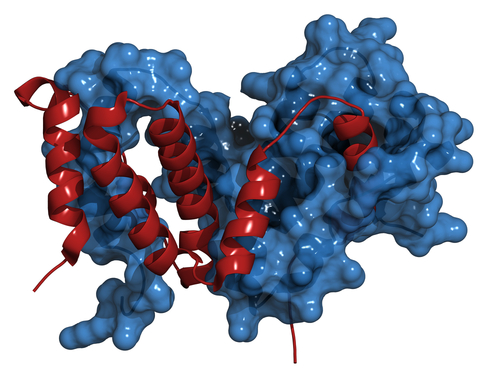Antibody Emicizumab Good for Patients with Hemophilia A, Phase 1 Trial Reveals

Chugai Pharmaceutical recently published data of a Phase I clinical study on the antibody emicizumab. The study, “Factor VIII–Mimetic Function of Humanized Bispecific Antibody in Hemophilia A,” was published in The New England Journal of Medicine.
The study revealed possible benefits from emicizumab for the prevention of bleeding in patients living with hemophilia A, with or without factor VIII (FVIII) inhibitor therapy.
“A great challenge with the current treatments for hemophilia A is that these patients need frequent intravenous injections and face the possibility of developing inhibitors to FVIII,” said Chugai’s director and executive vice President Dr. Yutaka Tanaka, in a Business Wire report.
The participants of the ACE001JP clinical study included 18 Japanese hemophilia A patients, either receiving or not receiving FVIII inhibitors. ACE001JP is an open-label study; patients received emicizumab injection once a week subcutaneously for 12 weeks.
“The study results indicated a potential for benefit from emicizumab in treating hemophilia A patients with inhibitors with once-weekly subcutaneous injection. With these findings, we expect that emicizumab may be a new treatment option to fulfill unmet medical needs of hemophilia A patients,” Tanaka said.
Emicizumab is also being tested in a Phase III clinical study for patients with hemophilia A and receiving FVIII inhibitors, in cooperation with Roche. Phase III clinical studies are also planned for pediatric patients and patients without FVIII inhibitors.
Data from the ACE001JP study ”A first-in-human phase 1 study of ACE910, a novel factor VIII–mimetic bispecific antibody, in healthy subjects,” was published in Blood Online.
Adverse effects over the 12-weeks of emicizumab administration were mild, except for upper respiratory tract infection and moderate headache in two patients. No clinically relevant coagulation abnormalities or thromboembolic conditions were observed, even when a FVIII product or bypassing agent was received with emicizumab administration.
The benefit for preventing bleeding with emicizumab was evident during the 12-week long administration. There was no bleeding in 13 patients who received emicizumab.






